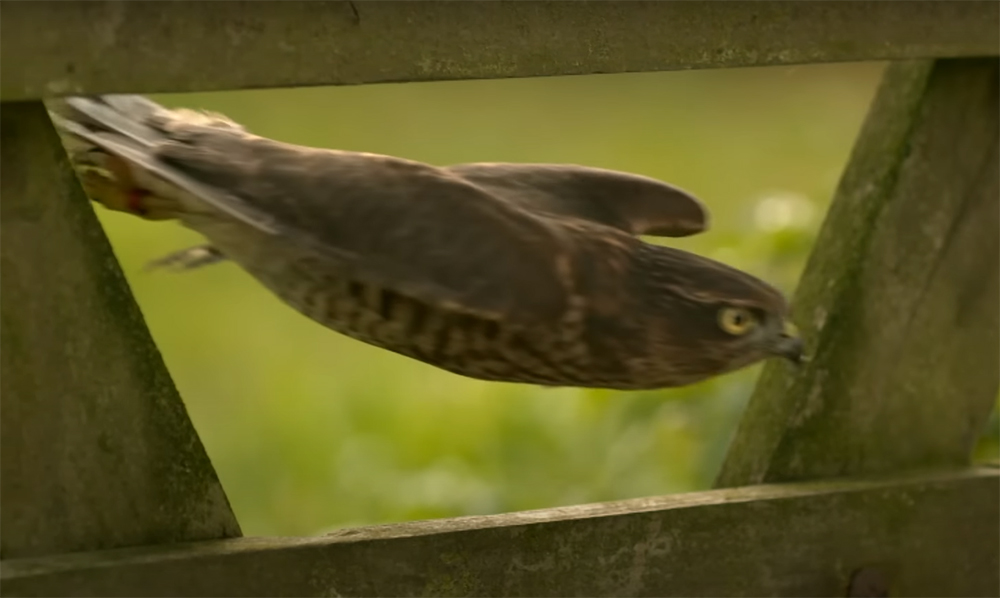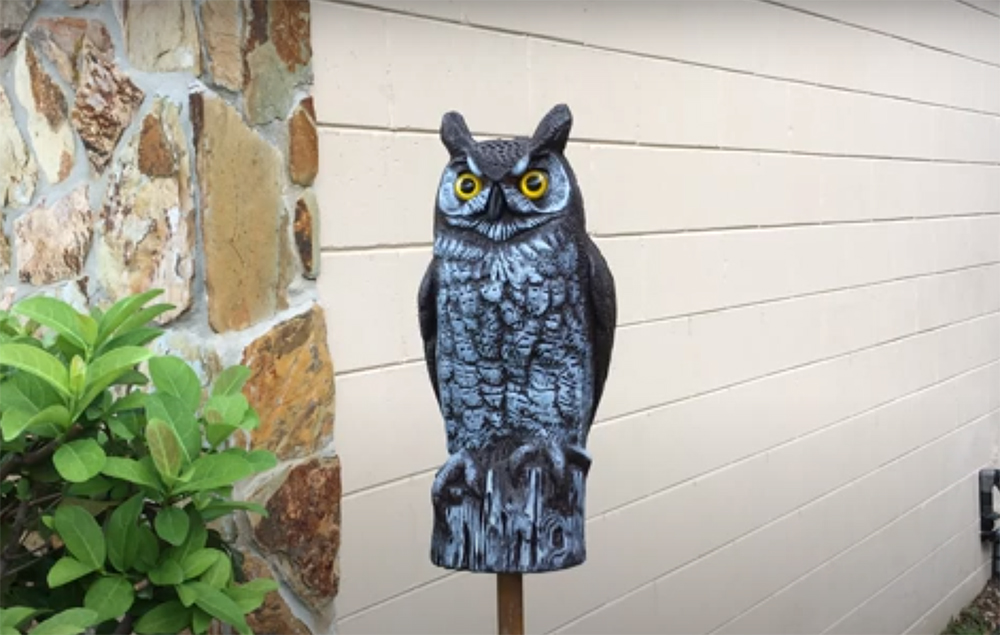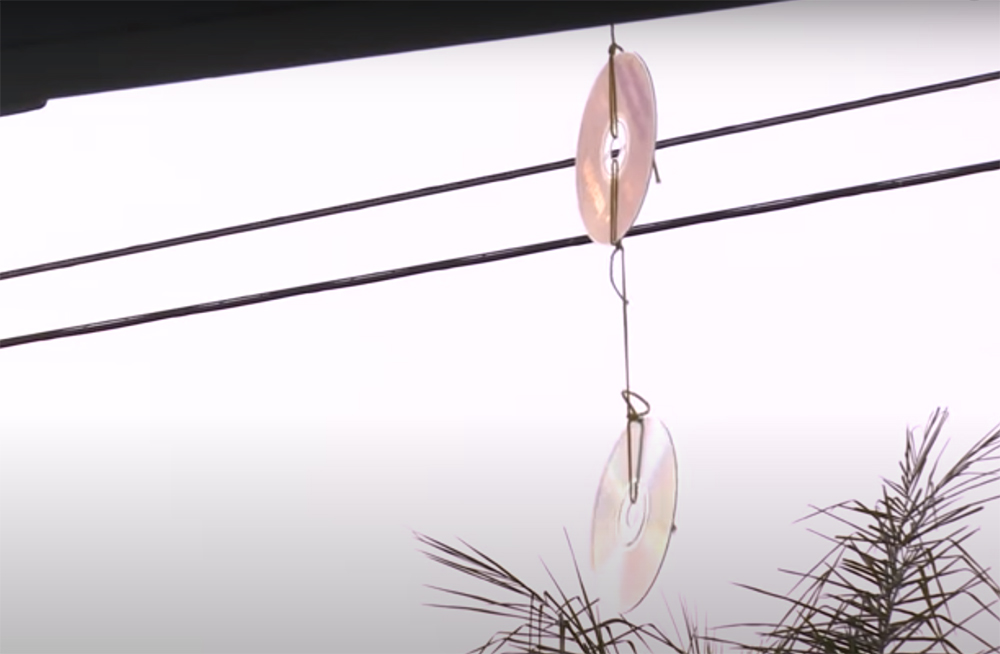Are hawks scaring away your feathered friends? Are you looking for a clever way to keep them at bay? Look no further than wind chimes! This comprehensive guide will explain exactly what wind chimes are, and how they can be used to scare off pesky hawks. Here, you’ll find the answers to all your questions about whether wind chimes truly do keep hawks away — and if so, how to get the most benefit from them.
Table of Contents
Hawks in Your Yard

Wind chimes make a lot of noise when the wind blows through them, and this sound often startles hawks enough that they’ll leave the area. Some people have found success in using brightly colored or metallic wind chimes as well — the color and reflective surfaces will attract attention and may further scare off hawks. There is some evidence that suggests that hawks are less likely to return to an area if a loud noise is present.
Another great way to protect your yard from hawks is to cover the area with netting. This can help keep smaller animals safe while also keeping out larger predators like hawks. Place it over areas where you know birds and other small animals like to frequent, such as bird feeders or squirrel nests. Make sure that the netting is securely anchored in place — this will help ensure that it’s not easily removed by the wind or by curious animals looking for a way in.
Wind chimes and netting are great tools that can help make your yard less inviting for these raptors without harming them in any way. With some patience and understanding, you’ll soon be able to enjoy your outdoor space without worrying about dangerous predators like hawks!
Why Do Wind Chimes Deter Hawks?
Do wind chimes have the ability to deter hawks from entering one’s home or garden? Sadly, there are no scientific studies that provide a definitive answer to this question. However, some speculate that the sound of wind chimes may act as an auditory deterrent for hawks by making them feel uncomfortable or keeping them off balance. This theory is based on the fact that many predators rely heavily on their sense of hearing when hunting, and the presence of an unfamiliar sound could be enough to make them give up and move on to easier prey.
In addition, it’s possible that the bright colors found in most wind chimes might also act as a visual deterrent for hawks. It’s thought that they may be less likely to attack if they are able to see something that stands out amongst the trees and plants.

Ultimately, there is no guarantee that wind chimes will keep hawks away from your garden or home. However, it may be worth giving them a try if you want an extra layer of protection against predators. And even if they don’t deter hawks, you’ll still have the added benefit of enjoying their pleasant tinkling sound!
Another way to help protect your property from hawks is to cover any open areas with bird netting or wire mesh. This can help reduce visibility and make it harder for hawks to find prey. It’s also important to note that some species of hawk are actually protected by law in certain states, so check with your local wildlife department before taking any action against them. [1]
Why Wind Chimes Will Eventually Stop Working
Wind chimes are a popular method of keeping hawks away, but they will only be effective for so long. After some time, the sound of the wind chimes may become too familiar to the birds and no longer act as a deterrent. Additionally, if you live in an area with strong winds or storms, your wind chimes may eventually be destroyed due to strong gusts of wind. For this reason, it is important to keep an eye on your wind chimes and replace them when needed.
Additionally, if you have other animals that like to make noise around your property such as dogs or cats, these sounds could potentially drown out the sound of the wind chimes and render them ineffective at deterring hawks from your property.
If you reside in an area abundant with hawks, they may get used to the sound of your wind chimes over time and may stop reacting to them. For this reason, it is important to keep experimenting with different types of noises and sounds to see what works best for deterring hawks from your property.
How To Use Wind Chimes And Still Keep Birds Away
Wind chimes can effectively deter hawks and other predatory birds. However, it is important to use them correctly so that they are effective and do not cause any damage.

First of all, the sound from the wind chimes should be loud enough to scare away hawks or other birds who may try to prey on smaller birds in your yard. The sound needs to be loud enough that when a hawk gets close, it will hear the sound and fly away before it has a chance to attack. If the sound is too quiet, then the hawk won’t notice it and could still end up attacking other birds in your yard.
You also want to make sure that you hang the wind chimes in an area that is exposed to the wind. This ensures that they will be heard and also makes it more difficult for a hawk to sneak up on any birds in your yard.
Finally, it’s important to remember that wind chimes won’t keep hawks away forever. It’s best to use them as part of other strategies, such as bird netting or scare devices, to ensure that hawks don’t return over time.
Things You Should Do To Use Wind Chimes To Repel Birds Effectively
- Place wind chimes at least 15 feet away from your home. Make sure birds won’t be able to access the area around the wind chimes, as this could lead to an increase in noise levels and cause further disruption.
- Hang several sets of wind chimes close together so they create a jingling cacophony that is loud enough to keep hawks away but not too disruptive for neighbors and passersby.
- Choose your wind chime carefully – it should fit into the environment where you plan on placing it, with materials that are effective at producing sound waves that will keep hawks away without causing a disturbance.
- Position the wind chime strategically in an open space so that the sound waves can travel freely and reach further distances.
- Look for wind chimes with other features such as a birdhouse or owl decoy that will help repel hawks even more effectively.
- Experiment with different materials to see which works best – metal, wood, bamboo, etc.
- Make sure you hang the wind chime in an area where it won’t be exposed to rain and snow, as this could render them less effective in keeping birds away.
- Consider using a motion-activated sound system instead of traditional wind chimes if your budget allows for it – this way, the noise emitted from the system will only activate when a hawk is detected near your home.
- Test out different sound frequencies – some hawks will be more sensitive to certain frequencies than others, so it’s important to experiment and find one that works best for your particular situation.
- Check on the wind chimes regularly to make sure they’re still functioning properly – if they become damaged or clogged with debris, replace them as soon as possible.

By following these tips, you should be able to use wind chimes effectively in keeping hawks away from your yard or garden!
Will Wind Chimes Keep Woodpeckers Away?
Woodpeckers can be a nuisance, pecking away at your home’s siding or other surfaces. You may be wondering if there is anything you can do to keep woodpeckers away from your property.
Wind chimes are often thought of as decoration, but some people believe they can also act as a deterrent for woodpeckers and other birds, such as hawks and crows. The idea is that the sound of the chimes will startle the birds and deter them from entering certain areas around your home.
This claim lacks scientific evidence. While using wind chimes may help prevent birds from entering certain places, it is not necessarily a reliable method for keeping woodpeckers away.
There are other things you can do to keep woodpeckers from damaging your home. For starters, make sure to keep any trees and shrubs trimmed back away from the building so that there are no branches touching the siding or roofline. This will reduce the number of surfaces available for the birds to peck at. You should also cover any exposed areas with netting or bird spikes to prevent them from trying to access these spots. Additionally, getting rid of any existing pests on your property may help discourage woodpecker activity since they feed on insects like grubs and caterpillars.
All in all, while wind chimes may help keep birds away in some cases, they are not a reliable method for keeping woodpeckers away. Taking preventative steps such as trimming back trees and shrubs and covering exposed areas with netting or bird spikes will be more successful at deterring the birds from your property.

How to Get Rid of Hawks
- Remove bird feeders or keep them empty: Hawks are attracted to areas where they can find food, so removing bird feeders will help deter hawks from your area. If you must have a bird feeder, make sure it is kept empty when not in use.
- Install wind chimes near problem areas: Wind chimes create sudden loud noises that may startle hawks and scare them away when they get too close to your house or yard. You can hang the wind chimes at strategic locations around your property to create an effective hawk deterrent system.
- Cover windows and other openings: Hawks use wide windows as perches for hunting, so be sure to cover any openings in your house or garage to limit the hawks’ access. You can also cover windows with netting to prevent them from entering your home and scaring away any birds that may be present.
- Block off roosting areas: Hawks prefer tall trees or open fields where they can easily spot their prey, so block these areas off by using fences or other barriers. This will make it more difficult for hawks to find a place to perch and hunt near your house.
- Install a scarecrow: Scarecrows are great hawk deterrents, as they make hawks think there is another creature in the area and cause them to flee the area in fear. You can buy ready-made scarecrows at most gardening stores or make your own with old clothes and sticks. [2]

By following these tips, you can effectively keep hawks away from your home and yard using wind chimes and other methods. Just remember to be patient; it may take some time before you start seeing results. If all else fails, consult a professional for help in keeping hawks away from your property.
Additional Tips
Wind chimes may help deter hawks, but there are additional steps you can take to protect your property. Hawks have a sharp eye and will likely swoop down on their prey if they feel there is an opportunity. Taking the following measures can help reduce the chances of a hawk attack:
- Keep pets under control by not allowing them to roam freely around your yard.
- Place protective netting or mesh above areas where small animals like birds and rabbits might be nesting or roosting.
- Remove any potential food sources from the area such as bird feeders, open compost piles, pet food dishes, etc.
- If possible, install motion detector lights in dark areas of your yard that will activate whenever the hawk approaches.
- Trim trees and other plants to reduce hiding spots for hawks.
- Do not leave pet food dishes out in open areas of your yard, as this will attract unwanted pests like rats and raccoons that can become prey to hawks.
By taking these steps, you can make sure that your property is safe from attack by hawks while also using wind chimes to help keep them away. With a little bit of effort and vigilance, you can enjoy your outdoor space without fear of attack from predators.

FAQ
What noises scare hawks?
Hawks are scared away by loud noises, such as those made by wind chimes, bells, and other items that make a loud sound when blown in the wind. Other noises hawks may be scared away by air horns, gunshots, or anything else with a loud noise. [3]
Will wind chimes scare birds away?
Wind chimes are not necessarily a guaranteed method of keeping birds away, but they can be used to deter some birds from entering your yard. Wind chimes make noise when the wind blows through them and this sound may frighten some species of birds. It is important to note that most bird species will become accustomed to the sound over time so you may need to replace or move the wind chimes periodically in order to keep them effective against certain types of birds.
In addition, there is no evidence that wind chimes specifically help with hawks. Hawks have excellent eyesight and typically use their vision more than their hearing for hunting prey. Additionally, hawks tend to live in areas where there are wide open spaces which would minimize the impact of sound-producing objects such as wind chimes.
However, hawks may be deterred by the presence of other birds in your yard. If you have wind chimes that are effective at scaring away some species of birds, then it is possible that hawks will steer clear since they don’t want to compete with other birds for food sources in a particular area.
While there is no direct evidence that wind chimes are effective at keeping hawks away, they can be used as part of an overall strategy to deter certain types of birds from entering your yard and discourage them from hunting there. By creating an environment unappealing to certain bird species, you may also discourage hawks from visiting your yard.
If you are looking for additional ways to keep hawks away from your property, you can also consider planting trees and shrubs, installing birdhouses or feeders, or adding bird-deterring devices such as motion activated sprinklers. With a combination of these methods, you may be able to effectively keep hawks away from your yard.
What do wind chimes keep away?
Wind chimes are believed to keep away birds of prey, specifically hawks. It’s thought that the sound of wind chimes combined with their bright shapes and colors can be a deterrent for hawks and other birds of prey as they hunt for food. Although there is no scientific evidence to prove this theory, it has been widely accepted by experienced gardeners and birders alike. The idea behind this theory is that hawks don’t like loud noises or sudden movements and will avoid areas where these could occur.
The effectiveness of wind chimes in keeping away hawks depends on several factors including the environment, the type of hawk, and the size of the chime. In order to achieve optimal results, you should select a wind chime with a bright and vibrant color, make sure the size is appropriate for your environment, and hang it at an appropriate height. Additionally, it’s important to remember that if you live in an area where hawks are a common sighting, then wind chimes alone may not be enough to deter them from entering your yard. [4]
Are animals afraid of wind chimes?
The short answer is yes – some animals may be afraid of wind chimes. This is because when the chimes interact with the wind, they create a loud and unique sound that can startle animals. Additionally, since most birds have good hearing abilities, the sound of ringing wind chimes may overwhelm them or make them feel uncomfortable.
Ultimately, the effectiveness of wind chimes depends on the environment and other factors such as weather conditions. As a result, it may be difficult to determine whether or not they will actually work to protect your property from hawks. Therefore, if you’re looking for an effective way to scare off hawks, consider using more permanent solutions like bird spikes or netting. Overall, do wind chimes keep away hawks? Possibly – but there is no definitive answer. It may be worth trying this strategy as part of your overall hawk prevention plan – just make sure that you also have other protective measures in place! [5]
Useful Video: Killer Hawks In Garden Hunting my Songbirds & what to do about it?
Conclusion
Whether or not wind chimes keep hawks away is still up for debate. Some people swear by the effectiveness of this natural solution, while others find that it does not always work. It may be worth trying if you have a serious hawk problem, but bear in mind that there are other techniques and methods available to help protect your birds from predators such as using scare tactics and netting over bird cages. Ultimately, what works best will depend on the situation and environment, so it’s important to do your research before deciding which option is right for you. With a bit of patience and experimentation, hopefully you can find a way to protect your birds with minimal stress and fuss! Good luck!
References:
- https://gardentabs.com/do-wind-chimes-keep-hawks-away/
- https://www.cleverpatio.com/do-wind-chimes-keep-birds-away/
- https://omnispest.com/what-noises-scare-birds-away/
- https://adamsfarms.com/gardentips/all-about-wind-chimes/
- https://www.americanmeadows.com/blog/2015/05/21/deteranimalsfromyourgarden






Leave a Reply